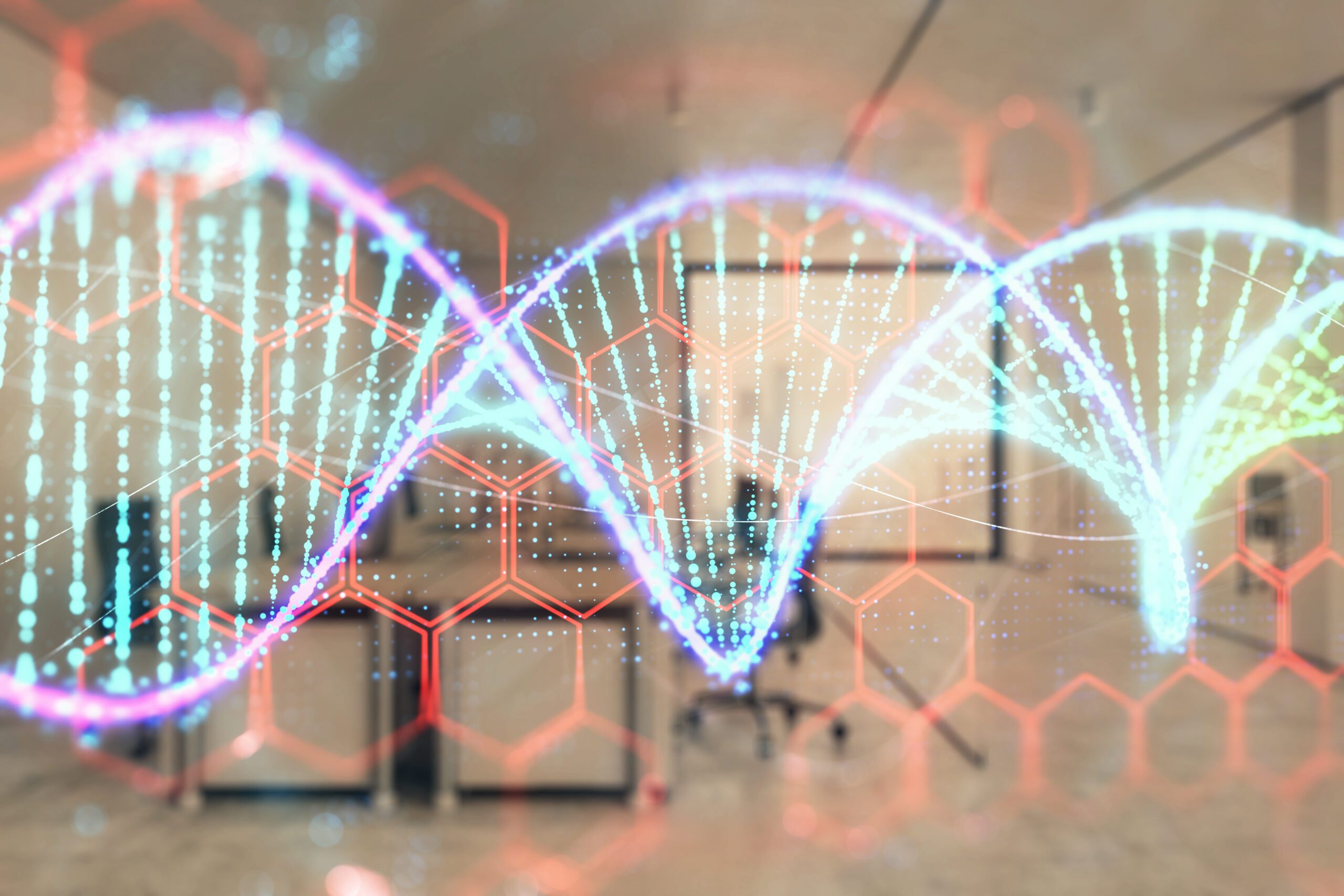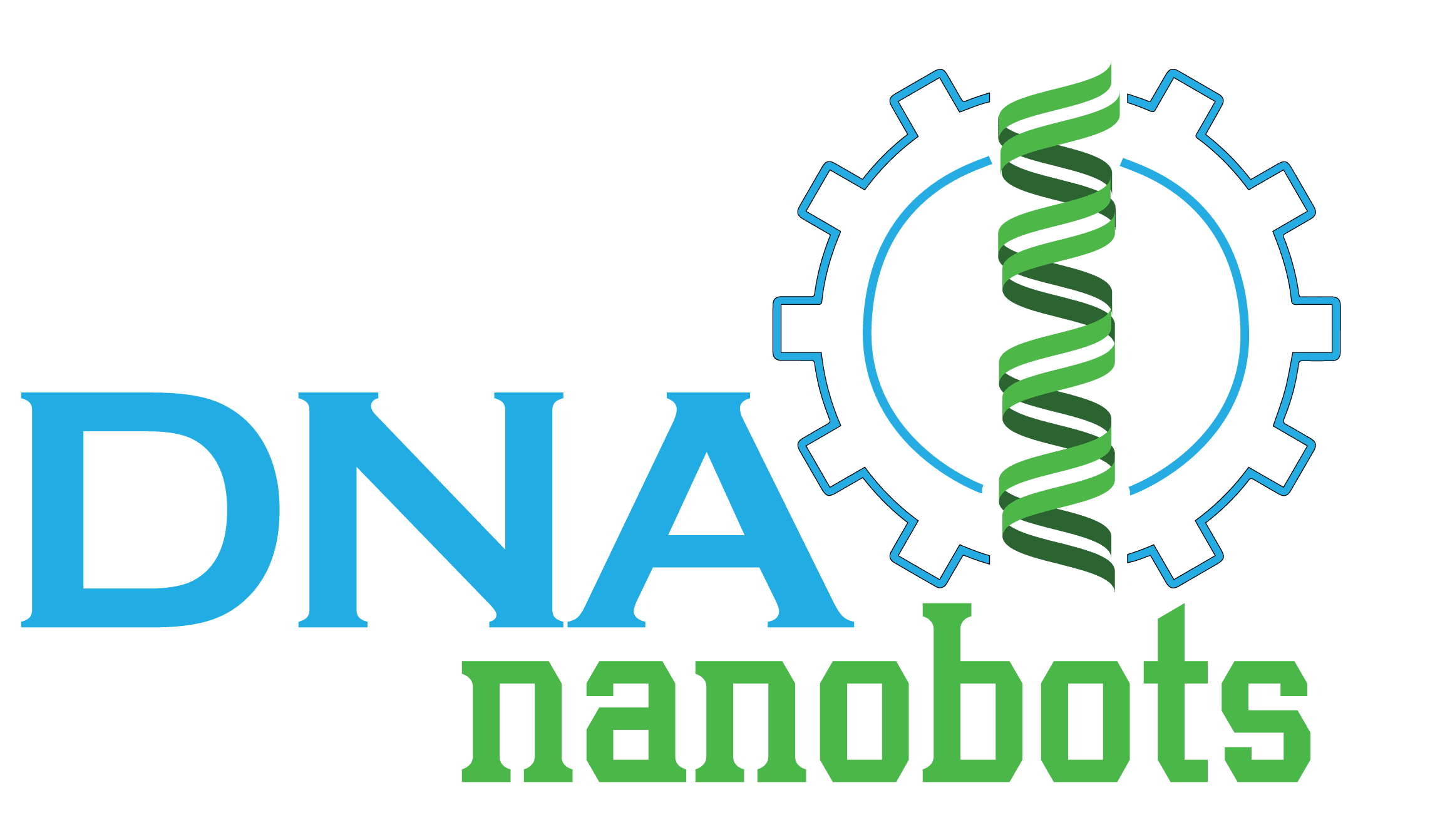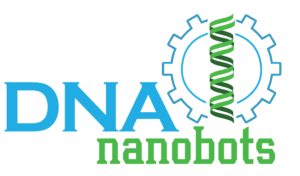The DNA Machines Company
Technologies
Gene Therapy
-
- Gene Therapy
We are developing a next generation non-viral gene delivery platform to deliver genes to nuclei of intended target cells. Major problems currently exist with respect to current viral gene delivery approaches including undesired immune responses, toxicity, and large associated costs.
Our approach involves utilizing the DNA origami molecular self-assembly method to compact a gene into a desired geometric shape and modify for direct cytoplasmic and subsequent nuclear delivery and genomic integration.
Advantages over conventional viral gene delivery platforms include:
i) lack of viral associated immune responses;
ii) non-toxic; and
iii) low cost.
Our team has demonstrated proof-of-concept in vitro evidence and published our findings
Targeted Chemotherapy
-
- Targeted Chemotherapy
We are developing a next generation targeted cancer drug delivery nanomedicine platform device engineered to deliver cancer drugs directly to cancer cells only, leaving healthy cells and tissues unharmed.
Current nanotechnology approaches are:
i) not able to build uniform targeted cancer medicine and
ii) suffers from a low amount of medicine reaching cancer cells in tissue.
Our targeted drug delivery system uses a new optimizable DNA based nanotechnology targeted cancer medicine that targets cancer cells only and lessens harmful side effects.
Importantly, our platform is customizable in that we can:
i) build a uniform population of DNA nanobots of any geometric shape;
ii) effectively load drug payloads (1000s) per single DNA nanobot compared to 4-8 for ADCs and
iii.) effectively add targeting molecules into our DNA Nanobot Drug Delivery System.
We build our DNA Nanobots within minutes, and load drug payloads and targeting molecules within a few hours.
We have demonstrated proof-of-concept in vitro efficacy among non-targeted DNA nanobots
Vaccine Development
-
- Vaccine Development
We are developing a next generation vaccine delivery nanomedicine platform specially targeted to antigen presenting cells (APCs) to optimize vaccine performance.
Using a patient’s own immune system to fight off his/her cancer is at the cutting edge of cancer research. Not only can a patient’s immune fighter cells kill their cancer, but they can also help prevent the disease from returning.
Furthermore, the vaccine development process for preventing and treating infectious disease is constantly in need of improvement.
Our approach involves:
i) constructing a compact DNA nanobot vaccine delivery system constructed by the DNA origami self-assembly process;
ii) loading a high density (100s) antigenic peptide payload into the DNA nanobot;
iii) decorating the DNA nanobot with 10s of nucleic acid adjuvants; and
iv) including either an aptamer or targeting antibody molecule against an APC surface marker.
We have completed proof-of-concept efficacy studies in vitro and in vivo and preparing our work for publication.
These studies are excellent examples of related DNA and RNA Nanotechnology toward vaccine development.
Cell Membrane Biosensing
-
- Cell Membrane Biosensing
We are developing a next generation DNA-based nucleic acid (RNA and DNA) or peptide biosensing platform embedded on a membrane surface.
Our platform will allow for either liposomal membranes or cell types of any kind to be re-programmed into micron scale biosensors.
Our approach allows for biosensing on a plasma membrane surface of either liposomal or cellular surfaces. This creates a solid support system for DNA nanobot biosensors to recognize and respond to specific target sequences.
Similar to our DNA nanobot biosensor in solution, our approach allows for selective and specific recognition of unique nucleic acid target sequences with multiplexing capabilities.
Cancer Drug Development
-
- Cancer Drug Development
We are developing a next generation cancer drug delivery platform capable of delivering a variety of molecular payloads including conventional chemotherapeutic and immunotherapeutic agents in a simultaneous manner. The DNA nanobot platform is ideal for therapeutic co-delivery due the ability to attach multiple functional payloads including:
i.) small molecule drugs;
ii.) anti-sense oligonucleotides (siRNA, miRNA, anti-miRNA);
iii.) genes;
iv.) immune checkpoint inhibitors (ICIs);
v.) therapeutic antibody molecules; all on an
vi.) aptamer/antibody targeted device to intended cancer target cells.
The ability to the co-deliver multiple therapeutics in a targeted manner will drive forgotten and underused chemo- and other therapies.
Nucleic Acid Biosensor
-
- Nucleic Acid Biosensor
We are developing a next generation DNA-based nucleic acid (RNA and DNA) sensing diagnostic platform for infectious disease and cancer in a point-of-care setting.
Our platform will allow for rapid and accurate point-of-care diagnostic testing with minimal and inexpensive equipment. The approach allows for selective and specific recognition of unique nucleic acid target sequences with multiplexing capabilities in solution.
We have demonstrated proof-of-concept using SARS-CoV-2 target sequences and are able to effectively detect
i.) SARS-CoV-2 synthetic target sequences;
ii.) RNA from cultured, inactive SARS-CoV-2 viral samples; and
iii.) RNA from SARS-CoV-2 positive clinical samples.


let’s get connected
Have a Question?
We’d Love to Chat.
